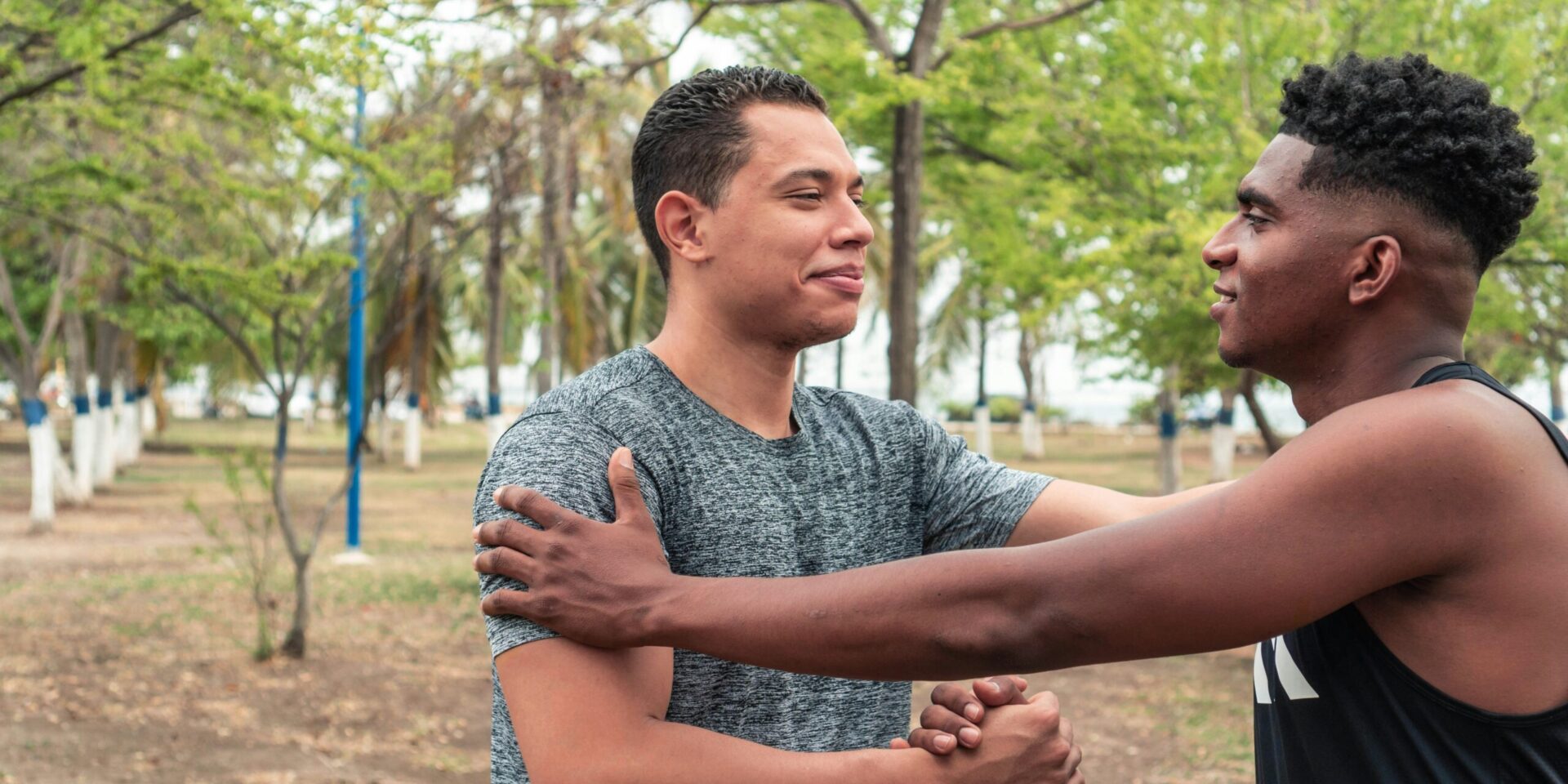Throughout June, the Men’s Health Network (MHN) spearheaded the annual Men’s Health Month campaign, emphasizing the need to “Close the Lifespan Gender Gap by Addressing the Empathy Gap.” This year’s effort encouraged communities across the United States to embrace empathy, support, and proactive care for men and boys—precisely the approach that fueled a remarkable surge in fitness-focused events culminating on July 14.
In cities and towns nationwide, grassroots groups, employers, schools, and civic organizations rallied around MHN’s call. The “Beat the Empathy Gap” initiative became a rallying cry for thousands of men who answered with walking clubs, group fitness challenges, community runs, and organized sports leagues. These activities were not only physical exercise but also social events, designed to foster peer support while breaking down emotional barriers to men’s health.
Over the course of June, local “Wear Blue” days—an MHN staple—provided visible solidarity each Friday, drawing public attention to mental and physical wellness. Fathers, brothers, and male role models participated in group runs, yoga sessions, and wellness workshops, reinforcing that fitness doesn’t have to be solitary or stigmatized.
By July 14, many of these initiatives reached their climax; charity runs exceeded enrollment expectations, and fitness challenges reported encouraging adherence and enthusiasm. Employers reported positive feedback: teams felt more cohesive, and men reported feeling more comfortable discussing stress, emotional wellbeing, and their health goals with colleagues. In some areas, local public health departments collaborated with MHN to offer free health screenings at community events, addressing hypertension, diabetes risk, and mental health.
This approach directly responded to well-documented concerns: men in the U.S. die on average nearly six years earlier than women, often because they are less likely to visit a doctor or seek preventive care—a phenomenon MHN labeled the “Empathy Gap” . Mental health challenges compound the issue: men are three to four times more likely than women to die by suicide, in part due to societal pressure to “man up” or remain silent.
By framing fitness as an empathetic, shared experience, the campaign successfully challenged these norms. Participants spoke of how the act of running or lifting weights together created a sense of accountability and emotional openness. In one Midwestern city, a wellness challenge knocked down participant stigma: one man shared, “This is about more than steps—it’s about support,” underscoring how physical activity served as a gateway to emotional connection.
Workplace engagement played a key role. Many companies organized “walk-and-talk” meetings or hosted lunchtime fitness classes, creating natural opportunities for men who might otherwise avoid healthcare conversation to open up. Several human resource professionals noted this shift reflected MHN’s dual focus: while Men’s Health Month centers on empathy, Amrican Men’s Health Week (June 9–15) emphasizes strategic action—two complementary efforts leading to more comprehensive support.
Local public health authorities further amplified the initiative. In Rowan County, North Carolina, officials explicitly tied fitness programming to the Empathy Gap theme, offering men’s health screenings and promoting mental wellbeing. In other regions, similar partnerships facilitated accessible appointments for prostate and testicular health.
The ripple effects of this fitness-focused campaign are already being measured. Preliminary feedback from MHN indicates a spike in screening appointments among male participants compared to last year’s campaign. Many reported improved mental health outcomes—less stress and increased motivation—not just because of exercise, but because they felt “seen” and supported.
Moving forward, MHN advises communities to sustain the momentum. Instead of limiting activity to June and July, they advocate embedding structured fitness groups and mental wellness check-ins into workplace routines, neighborhood associations, and faith-based organizations year-round. They argue that empathy and strategy must be institutionalized through policies, wellness perks, and male-focused health education.
Experts also warn that fitness alone is insufficient. Long-term change requires medical engagement—regular check-ups, preventive screenings, mental health counseling—and open conversations about emotional health. The fitness initiatives served as entry points; now the challenge is deepening those connections into lasting care-seeking behaviors.
In reflecting on the campaign’s success, MHN’s Director of Communications, Jennifer Thompson, noted: “By meeting men where they are—in movement, in community, in shared experiences—we’re closing the empathy gap one step at a time”. This strategic shift towards empathy-driven health promotion, paired with physical activity, is already influencing how communities shape men’s well-being.
The conclusion of the “Empathy Gap” initiative marks a powerful pivot in public health messaging. By harnessing fitness as both catalyst and connector, MHN and its partners have demonstrated a model that addresses physical, emotional, and social health in an integrated fashion.
As tomorrow’s reports are compiled, researchers will examine whether these June initiatives translate into better health outcomes: more men screened, higher rates of mental health treatment seeking, and, in time, a measurable narrowing of that six-year lifespan disparity. For now, though, one thing is clear: empathy paired with community-driven fitness has opened a new frontier in men’s health, transforming how we engage, encourage, and empower men to take care of themselves—and each other.

